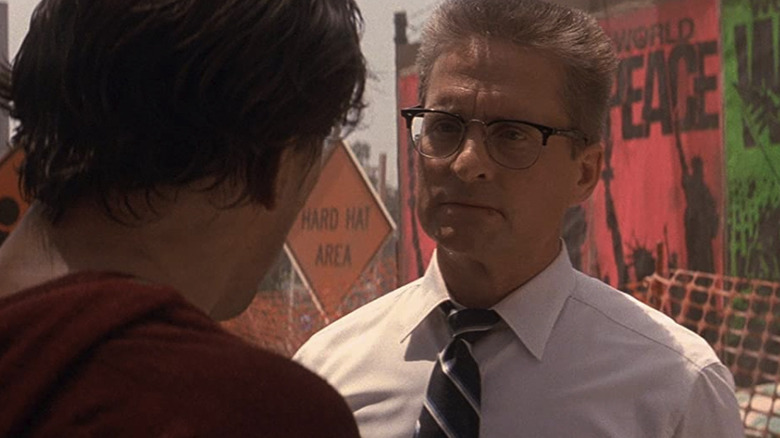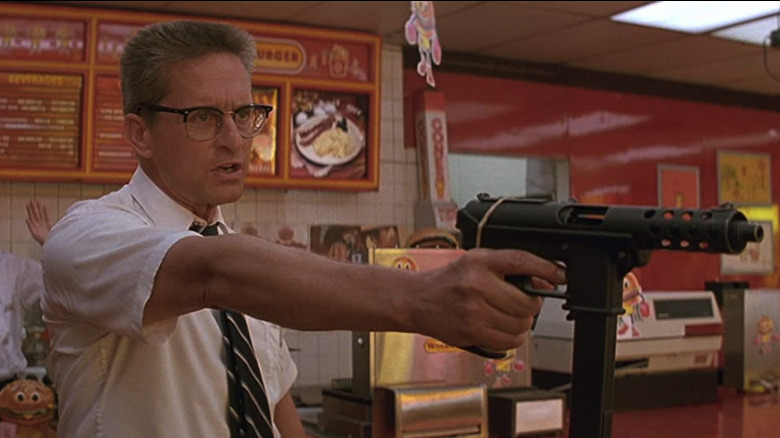Michael Douglas' Character In Falling Down All Came From The Hair
"Falling Down" is the story of a man who gets pushed over the edge. That man, played by Michael Douglas, feels alienated and impotent in his place in society, and after suffering a mental breakdown, he goes on a violent (and often racist) rampage through Los Angeles.
The movie's themes feel perhaps even more prescient today than they did when it was released, with Douglas' character serving as a sort of avatar for the "white male rage" of the Internet era, when people are more isolated than ever. People long for a world of the past, a world that makes sense to them, and when they look around and don't see that, they lash out.
Watching the film today, some people may feel that the film doesn't do quite enough to condemn the actions and worldview of Douglas' character, especially in situations like his racist tirade against a Korean convenience store owner. The director himself, Joel Schumacher, addressed these criticisms in an interview back in 1993 when the film was released, saying that while the character was meant to be relatable on some level, to make the audience feel conflicted, he isn't supposed to be emulated.
Regardless of how you feel the movie's politics have aged, Michael Douglas puts in a compelling performance as William Foster, a man who can no longer handle the mundanity and fruitlessness of his life. And according to Douglas in his own 1993 interview, a lot of his understanding of the character originated from a suggestion by the hairdresser on the movie's set.
The haircut makes the man
The saying "the haircut makes the man" may not ring very true in everyday life, but in movies, it's basically the law. There are countless film characters who you see fleshed out by their choices of hairstyle, whether it be Val Kilmer in "Top Gun" deciding to make Iceman's haircut as ridiculous and douchey as possible, or the extremely strange and off-putting haircut of the cold-hearted killer Anton Chigurh in "No Country for Old Men."
The William Foster character in "Falling Down" is no exception. Going into filming, they had most of Foster's appearance down. He'd wear tight, repressive clothing, wear glasses, and carry a briefcase. But they didn't know what they were doing with his hair until the hairdresser on set made a suggestion, which, as Douglas explained, really finally gave him a sense of the character:
"It's amazing sometimes how the haircut can make the man, and the haircut came and all of a sudden the whole character came together. I had a sense of somebody of this military background, maybe he'd been in the service at one time. Somebody who worked in the defense industry ... I also had a sense for the guy, that he gave me a feeling of like the late 50's and the early 60's, and somehow my character, you kind of had the feeling that he came from another time, or he wished for another time when things made sense. When somebody's job was worthwhile [and] you had a purpose in life."
Things like hair and wardrobe and makeup can sometimes be overlooked in filmmaking, but examples like this show how those aesthetic choices play an important part in the symphony that is a film. No contribution is too small, and when someone like Michael Douglas takes suggestions from the hairdresser, fascinating things can happen.

